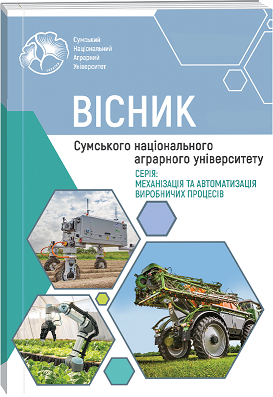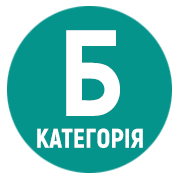APPLICATION OF THE PROBLEM-BASED LEARNING METHOD IN THE TRAINING OF ENGINEERING SPECIALISTS
Abstract
Traditional views on education, formation of knowledge, abilities and skills do not satisfy the demands of modern society today. One of the priority directions of the state policy regarding the integration of higher education into the European educational space is the constant improvement of the quality of education, modernization of its content and forms of organization of the educational process, development and implementation of educational innovations. That is why so much attention is paid to innovative teaching methods in the educational process. Problem-based learning is most often considered as a technology of developmental education aimed at active assimilation of knowledge, formation of mental abilities and methods of research activity, involvement in scientific research and development of creativity. Compared to traditional learning, the goal of problem-based learning is much broader and consists in the assimilation of not only the results of scientific knowledge, but also the process of obtaining these results, including the formation of the learner’s cognitive activity and the development of his creative abilities. At the same time, the emphasis is on the development of thinking. The technology of problem-based learning is available to all students, since the indicator of the difficulty of the lesson is the presence of stages of search activity in its structure. When studying physics, it is necessary to use innovative teaching methods that contribute to better assimilation of educational material by students and contribute to the development of their cognitive interests, which in turn increases the quality of education. The main advantages of problem-based learning in the study of physics include the fact that it develops the mental abilities of students; arouses their interest in learning and contributes to the formation of motives and motivation for educational and cognitive activity; awakens their creative abilities; has a versatile character; fosters independence, activity and creativity of students; contributes to the formation of a comprehensively developed personality, capable of solving professional and life problems in the future. The article examines the general theoretical and partial practical aspects of problem-based learning as one of the innovative methods of learning in higher education institutions, using the example of studying physics. The structure and types of problem-based learning are highlighted, a number of features and advantages of the latter compared to traditional learning are shown.
References
2. Kozak, L. V. (2014). Doslidzhennia innovatsiinykh modelei navchannia u vyshchii shkoli [Study of innovative models of learning in higher education]. Osvitolohichnyi dyskurs, 1(5), 58–66 (in Ukrainian).
3. Komar, O. A. (2005). Modernizatsiia suchasnoho navchalno-vykhovnoho protsesu [Modernization of the modern educational process]. Zb. Naukovykh prats, 2, 159–166 (in Ukrainian).
4. Krasnozhon, S. V., Piddubnyi, V. A. (2016). Innovatsii v osviti [Innovations in education]. Innovatsiino-investytsiina polityka, 6(181), 19–22 (in Ukrainian).
5. Yanisiv Yu. (2014). Poniattia ta zavdannia «Innovatsiinoho rozvytku osvity» [Concept and tasks of «Innovative development of education»]. Molod i rynok, 4, 155–159 (in Ukrainian).
6. Navolokova, N. P. (2009). Entsyklopediia pedahohichnykh tekhnolohii ta innovatsii [Encyclopedia of pedagogical technologies and innovations]. Kharkiv, Osnova, 176 (in Ukrainian).
7. Vadets, D. I., Moroz, M. V., Orlenko, V. F., & Rybalko, A. V. (2014). Zbirnyk zapytan, zavdan ta testiv z kursu zahalnoi fizyky [Collection of questions, tasks and tests from the course of general physics]. Rivne, NUVHP, 226 (in Ukrainian).
8. Syrotiuk, V. D., Slabko, V. M. (2013). Kontseptsiia suchasnoho pidruchnyka z fizyky [The concept of a modern physics textbook]. Naukovyi chasopys NPU imeni M.P. Drahomanova. Seriia 5. Pedahohichni nauky: realii ta perspektyvy, 40, 213–221 (in Ukrainian).
9. Honcharenko, S. U., Korshak, Ye. V., Pavlenko, A. I., Serhieiev, O. V., Bashtovyi, V. I., & Korshak, N. M. (2004). Rozviazuvannia navchalnykh zadach z fizyky: pytannia teorii i metodyky [Solving educational problems in physics: issues of theory and methodology]. Kyiv, NPU im. M.P. Drahomanova, 185 (in Ukrainian).

 ISSN
ISSN  ISSN
ISSN 



